James Connolly and the 1916 Rising
75th Anniversary Supplement
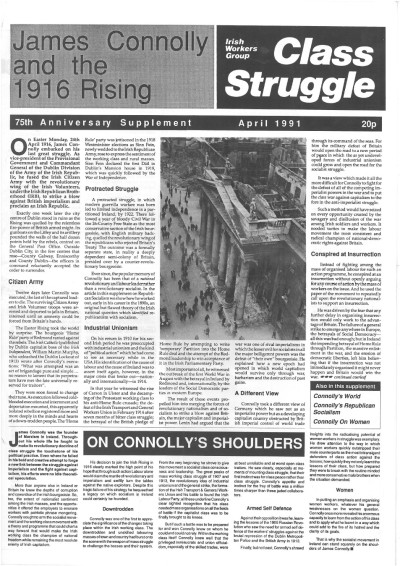
| Date: | April 1991 |
|---|---|
| Organisation: | Irish Workers' Group [1976] |
| Publication: | Class Struggle |
| Collection: | 1916 Easter Rising: Anniversaries and Commemorations |
| View: | View Document |
| Discuss: | Comments on this document |
| Subjects: | 1916 Easter Rising James Connolly |
Please note: The Irish Left Archive is provided as a non-commercial historical resource, open to all, and has reproduced this document as an accessible digital reference. Copyright remains with its original authors. If used on other sites, we would appreciate a link back and reference to The Irish Left Archive, in addition to the original creators. For re-publication, commercial, or other uses, please contact the original owners. If documents provided to The Irish Left Archive have been created for or added to other online archives, please inform us so sources can be credited.
Commentary From The Cedar Lounge Revolution
14th March 2016
This document, for which many thanks to the person who forwarded it to the Archive, is a four page special supplement to the Irish Workers Group publication Class Struggle for the 75th anniversary of the 1916 Rising.
The contents includes an outline of the the participation of James Connolly in the Rising. It argues that:
Ever since, the popular memory of Connolly has been that of a national revolutionary and labour leader rather than a revolutionary socialist. In the article in this supplement on Republican Socialism we show how he worked out, early in his career in the 1890s, an original but flawed theory of the Irish national question which identified republicanism with socialism.
The document examines Connolly’s approach and posits that:
Connolly was one of the first to appreciate the significance of the canoes taking place within the working class. The downtrodden and unskilled labouring masses of town and country and burst onto the scene with the weapon of mass struggle to challenge the bosses and their system. From the beginning he sought to give this movement a socialist class consciousness and leadership.
It also notes his support for armed self defence and ‘shrewd insights into the radicalising potential of women workers in struggle’. Another piece examines his support as a ‘Champion of the Woman Worker’. This suggests that:
…he had no perspective of mobilising amen in a specific struggle, using class action for woman’s emancipation. While he saw the necessity for women to fight together against their oppression, he narrowed the horizons for organised women workers to the fight around economic issues in the unions.
The document is also critical of Connolly. For example:
Tragically, Connolly’s overarching focus on the need for insurrection profoundly shaped his political propaganda during the war years. In Workers Republic in January 1916 immediately after joining the IRB conspiracy, he answered at length the question – ‘What is Our Programme?’. There we find nothing whatsoever with which the IRB could disagree – and nothing at all of a fighting socialist character.
And it continues;
The basis of his alliance with the IRB and the whole of his public propaganda in the lead up to 1916 show that he did not consciously seek to independently assert, let alone fight for at the time, a socialist programme. IT was the abandonment of a principle long established since Marx…
There is an useful piece on the World of James Connolly which considers his participation in the Scottish Socialist Federation amongst other matters. And another article looks at Connolly’s Republican Socialism.
Interestingly this concludes that:
Connolly’s much acclaimed slogan, therefore, ‘The cause of Ireland is the cause of labour, the cause of labour is the cause of Ireland’…was founded on a populist misconception of the national struggle as inevitably socialist. it masked in reality a tragic liquidation of the political independence of the working class into revolutionary nationalism. In that respect it is a part of Connolly’s legacy that must be rejected in the fight for the overall goal which Connolly first placed before the Irish working class – the establishment of a Workers Republic and international communism.
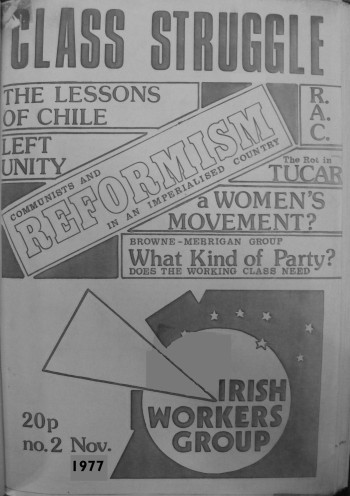
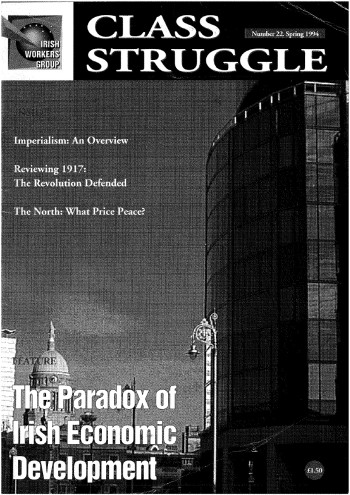
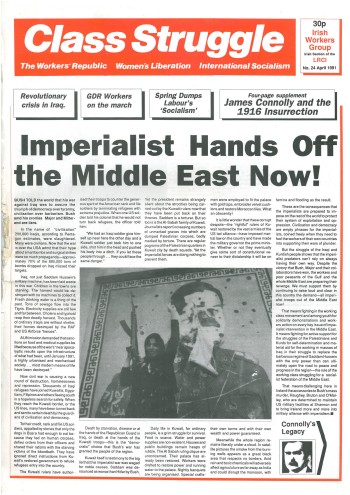
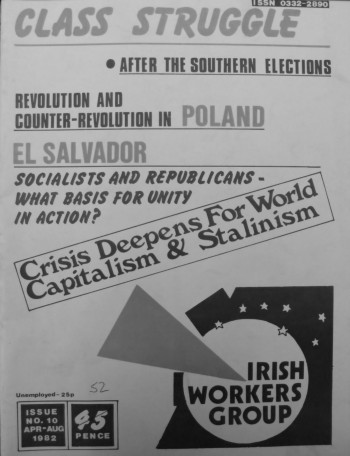
Comments
No Comments yet.
Add a Comment
Comments can be formatted in Markdown format . Use the toolbar to apply the correct syntax to your comment. The basic formats are:
**Bold text**
Bold text
_Italic text_
Italic text
[A link](http://www.example.com)
A link
You can join this discussion on The Cedar Lounge Revolution
By: Starkadder Mon, 14 Mar 2016 23:07:37
Interesting. The book “Connolly: A Marxist Analysis” mentioned in the
document seems to have enjoyed widespread circulation- Worldcat
lists a copy in every major university library in Ireland, plus it often
turns up in public libraries as well.
Reply on the CLR